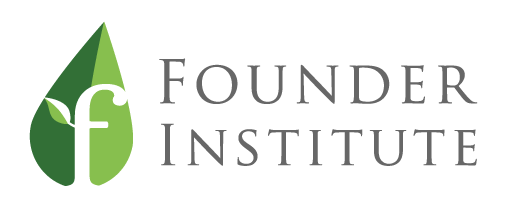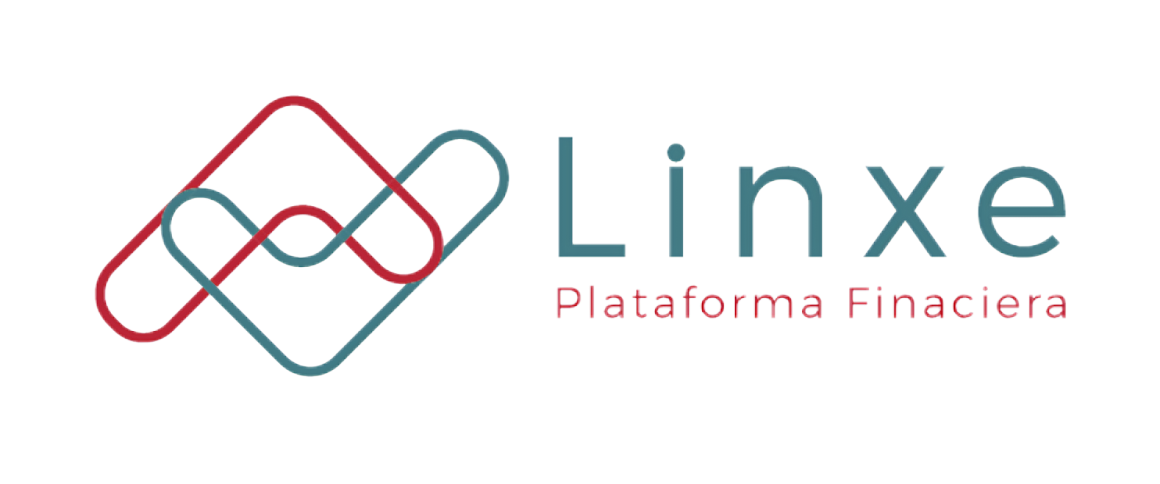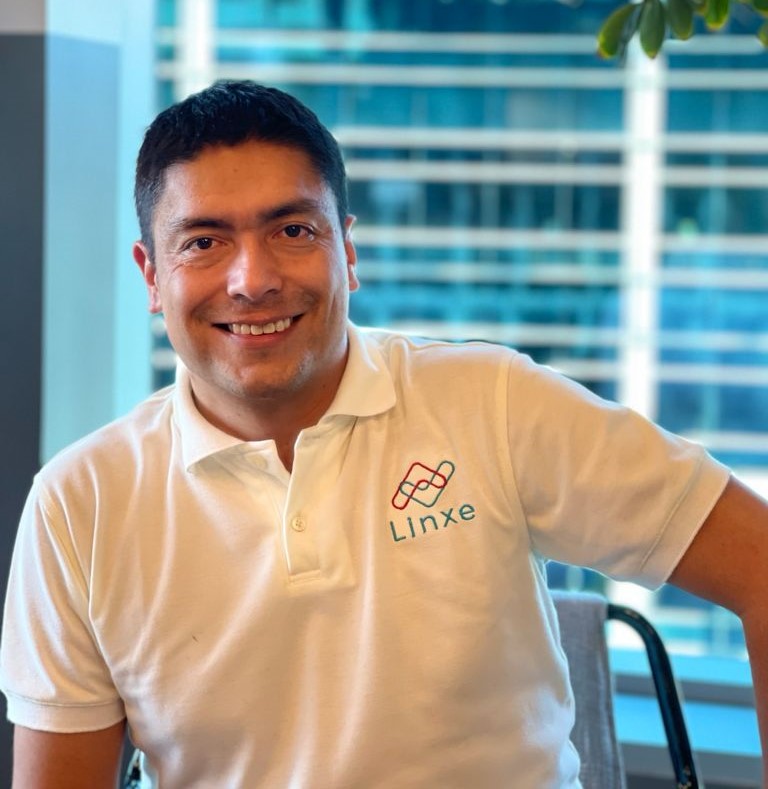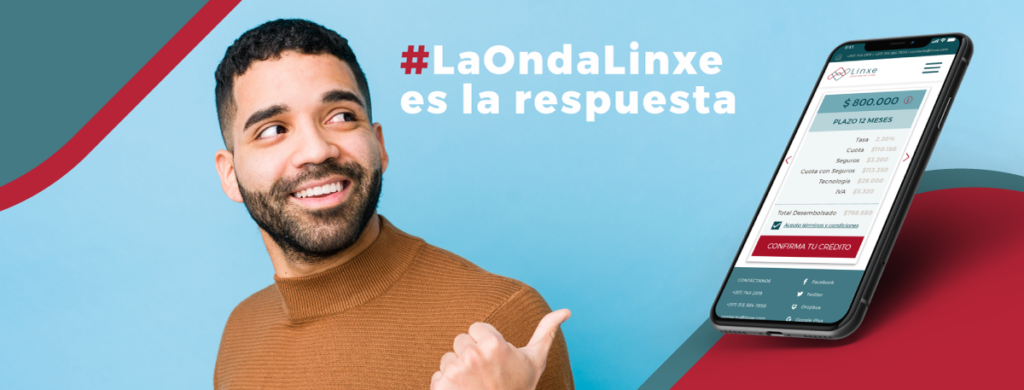Meet Diego Rodriguez from Linxe
Q: Could you introduce yourself and your startup?
A: I’m Diego Rodriguez, CEO and co-founder of Linxe. Our startup is a financial inclusion platform focusing on employees, particularly those at the base of the formal employment pyramid. We aim to address the financial challenges faced by employees who, despite having formal jobs, often earn low incomes in the range of 200-400 dollars monthly. This financial situation means they live paycheck to paycheck and struggle with limited options in emergencies. Our solution is to provide immediate access to liquidity for these employees to address their urgent financial needs. The unique aspect of our approach is the use of payroll deduction as a method for all our products. Whether it’s our current offerings or future projects, our solutions involve direct deductions from the salaries of our customers. This method allows us to offer practical, immediate financial assistance while ensuring ease of repayment.
Q: What inspired you to create Linxe?
A: My inspiration for Linxe primarily came from my professional background. I worked in consumer banking for nearly 14 years in Colombia, where I consistently encountered the challenges of serving low-income employees. These employees, though working for private companies, often fell through the cracks due to issues like risk factors, lack of information, and the high operational costs involved in reaching them. Banks typically focused on public employees from government companies as they were easier to serve. I recognized a significant gap in the market – a large segment of underserved private employees. Additionally, one of my co-founders had initiated a similar project, albeit in a very rudimentary form with manual processes. This project aimed at helping these employees too. Realizing the potential in this area, I decided to leave my position as a VP of Sales and Marketing at a bank to pursue this opportunity. My co-founder and I joined forces, combining our experiences and insights. We aimed to address this gap in financial services for low-income employees, which led to the inception of Linxe.
Choosing Founder Institute
Q: What led to your decision to join the Founder Institute?
A: Founder Institute came into the picture as our first real foray into the startup world. Back in 2019, I had a wealth of corporate experience, an MBA, and a high-ranking position in a bank. While I had considerable experience in the corporate sector, I was new to the startup ecosystem. When we began figuring out how to build our company, someone suggested the Founder Institute. They had an established program in Colombia for about four to five years and were advertising their new cohort. We attended their meetings to understand how the Founder Institute operates and what it offers. Joining the Founder Institute was a strategic move for us. It represented our first step in seeking guidance on navigating the startup landscape. Their well-established methodology and program seemed perfectly suited to help us understand and adapt to the dynamics of the startup world. Thus, we decided to apply and start the program, seeing it as an essential resource to develop our startup effectively.
The Application Process for Founder Institute
Q: Can you describe your experience with the application process for the Founder Institute?
A: The application process for the Founder Institute was surprisingly straightforward. We were required to fill out a small form that was quite simple. This simplicity can be attributed to the fact that the Founder Institute focuses on startups at an early, ideation stage. You don’t need to have a well-established company to apply. The application primarily aimed to understand our idea, what we were looking to achieve, and the problem we intended to solve. The questions were basic but required some creativity to articulate our vision, expectations, and solutions. I believe this part of the process was designed to gauge the clarity and potential of our startup concept. Overall, I found the application stage to be quite accessible and manageable.
Understanding Founder Institute’s Program Structure and Equity
Q: Could you explain Founder Institute’s program structure, including costs and equity aspects?
A: Yes, the Founder Institute does require payment of a fee for participating in its program, which typically lasts around 12 to 14 weeks. It’s important to note that being selected for the program doesn’t guarantee graduation. You need to successfully complete the entire duration of the program, which is the 14-week period. Upon graduation, the Founder Institute asks participants to sign a warrant. This warrant isn’t exactly a direct stake in your company but rather provides the Founder Institute with an option to invest in your company in the future. This investment option is usually valid for about 10 to 15 years, giving them the potential to acquire a part of your company later on. So, while they don’t invest directly at the program’s outset, they retain an option to do so in the future based on the company’s progress and success.
Daily Routine in the Founder Institute Program
Q: What was a typical day like during the Founder Institute program?
A: The experience with Founder Institute was intense and highly structured. Initially, I had no clear expectations about the program’s demands, but it quickly became evident that they had a well-organized framework covering various aspects of startup development.
The program operates on a part-time basis, but the commitment is substantial. A minimum of around 20 hours per week is expected, although this can increase significantly depending on how deeply one engages with the resources provided. It’s really up to the participant to decide how much time and effort to invest. Each week is packed with activities, including homework and sessions with mentors. This workload explains why there are drop-offs during the program; it’s rigorous and demands consistent effort. The live sessions with mentors are crucial, and to get the most out of them, you need to have completed your homework. Without this preparation, it can be challenging to follow the discussions or ask pertinent questions. Despite the demanding schedule, the learning curve is steep but incredibly valuable. You gain insights into various facets of running a startup, such as product development, MVP creation, regulation, marketing, and strategy. The workload is heavy, with each week bringing a new set of tasks and learnings. However, for those genuinely committed to the journey, like myself, the experience is enriching and enjoyable, albeit challenging.
The Biggest Benefits and Challenges in the Founder Institute Program
Q: What were the main benefits of participating in the Founder Institute program?
A: The most significant benefit of the Founder Institute was gaining a comprehensive understanding of how the startup world operates. For someone like me, with extensive corporate experience but new to startups, the program was an ideal introduction. It helped demystify various aspects of startup culture, including sprints, overall operations, and the various facets of running a startup. This program was an eye-opener. It required humility to acknowledge how much there was to learn in this new field. The mentors and the network provided by the Founder Institute were invaluable. They were always willing to help, going above and beyond, including after-hours support. Another major benefit was access to the funding lab program, exclusive to graduates. This program focuses on fundraising strategy and networking with investors. We were one of the few companies to participate in this subsequent program, which proved crucial in our ability to raise pre-seed funding.
Q: Were there any challenges or aspects of the program that were particularly difficult?
A: Yes, the program was highly demanding. It’s designed to rigorously test your commitment and ability to handle stress, mirroring real startup challenges. Every session, there’s a “hot seat” where you might be randomly chosen to deliver a pitch. This constant pressure is part of the training to prepare you for the startup environment. The program’s intensity causes many to drop out; we started with around 40 companies, and only about 10 graduated. The Founder Institute makes it clear that if you’re not fully committed, you should consider dropping out. They even offer the flexibility to rejoin in a future cohort without additional fees. This approach, while challenging, is meant to motivate and ensure participants are genuinely dedicated to their startup journey.
Post-Accelerator Relationship with Founder Institute
Q: How has your relationship with the Founder Institute evolved after completing the program?
A: Post-accelerator, our relationship with the Founder Institute has naturally evolved. Initially, they were my go-to resource for everything – from seeking advice to networking. The local managing director and the mentor network were invaluable during our early stages. As we progressed and joined other programs like Techstars, our network expanded, and we began to rely on a broader range of resources and support. However, our connection with the Founder Institute still remains, though it may not be as intense as it was in the beginning. We’ve maintained ties with them. A couple of years after graduating, I returned to share our experiences with new participants, especially emphasizing the value of advancing to the funding lab after the primary program. This journey as an entrepreneur has instilled in me the importance of giving back. I believe in helping others in the startup community, as I valued such support during my early days. Although there have been some changes in leadership and contacts within the Founder Institute, we still maintain good connections with some of the key people there. This ongoing relationship is a testament to the enduring support and community that the Founder Institute provides to its alumni.
Final Advice for Aspiring Startup Founders
Q: As we conclude, what advice would you offer to those considering applying to Founder Institute or similar programs?
A: My primary advice is to always give it a try, regardless of the stage your startup is in. There’s often a hesitation, especially at the beginning, driven by fear or the belief that one should wait until having a more established product or company. However, I’ve learned that the stage of your startup shouldn’t be a deterrent. Whether you’re just at the idea stage or further along, if you recognize the need for help, these programs are designed for you. Programs like the Founder Institute are structured to guide you more smoothly through the entrepreneurial journey. They aim to help you avoid common mistakes and accelerate your learning process. It’s important to be open to learning new skills and expanding your network. Social skills and the ability to connect with people are crucial in any business venture. So, my advice is not to wait. If you feel the need for guidance and support, apply to these programs. They’re invaluable for learning, networking, and overall growth as an entrepreneur.



